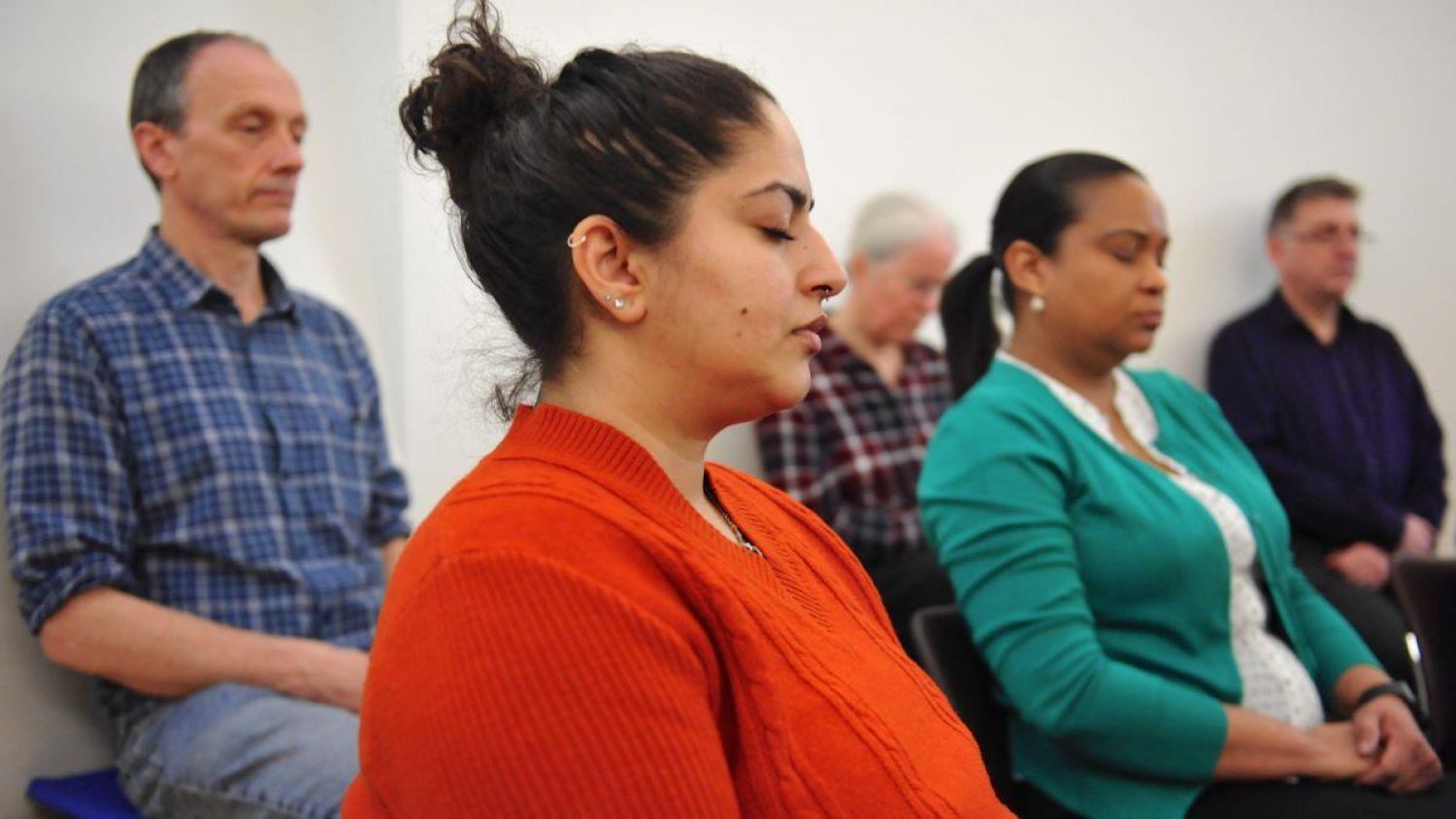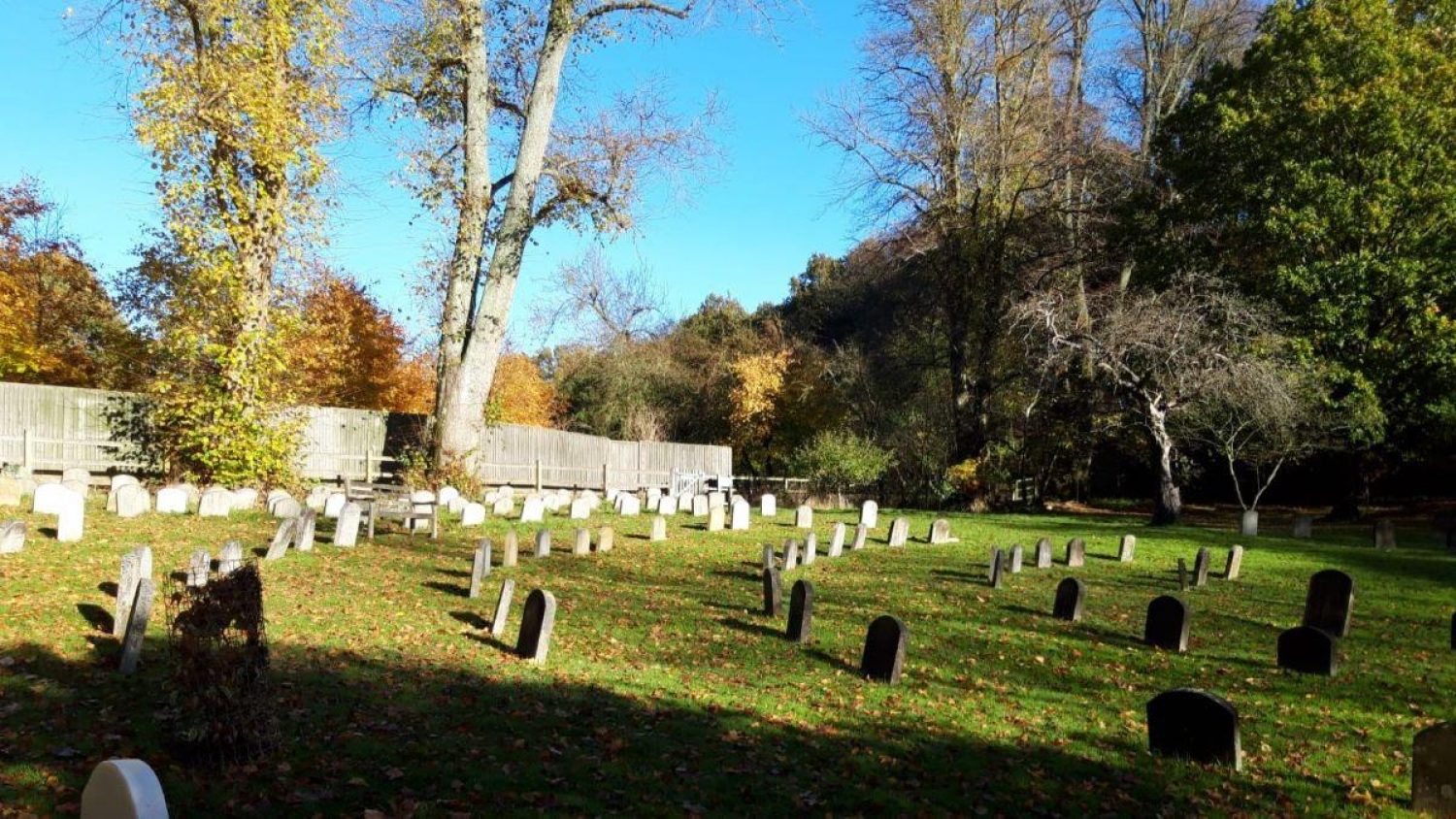Four minute read
Quakers, also referred to as the Religious Society of Friends, are known for their silent worship and simple lives. We spoke to two Quakers, Anna Wilde and Sophie Smith, about how these values are expressed in Quaker funerals, and what to expect if you are invited to one.
In a nutshell, what happens at a Quaker funeral?
Sophie: The starting point for Quaker funerals is that they take the same simple form of worship as a regular Quaker meeting for worship.
There isn’t one person who leads. It usually starts with a short introduction from one of the Quakers there, explaining what we are here for and what will happen.
Then everyone settles into stillness and quiet. In that quiet, anyone can speak as they feel moved to. You don’t have to be a Quaker to speak. Quakers call this ministry.
It could be a story or memory, thought or prayer, anything that relates to why you are gathered there. Sometimes there is music or singing. It’s usual to leave a pause for reflection between each piece of ministry.
Words used are often simple, and no one has to say anything. Quaker funerals are inclusive of all ages. In theory, you could have a Quaker funeral where no words are said at all.
Anna: It’s very important that the funeral meeting is unhurried and unrushed. It’s an opportunity for family and friends to share their genuine inner feelings and to speak from the heart.
The silence can help people to focus on the individual who has died and encourages awareness of the God (or the Spirit or the Light) within us.
After a period of time, an Elder will finish the meeting in the traditional Quaker way by shaking hands.
Are there practical things that people should know about Quaker funerals? Are there flowers, for example, or will there be a particular dress code?
Anna: Equality is very important to Quakers. Anything looks extravagant or costs a lot of money would not be the Quaker way, that includes the coffins, flowers and headstones.
Sophie: Quaker funerals are very straightforward. There is no expectation that you will wear anything specific — just wear what’s comfortable. You don’t have to bring anything except yourself. You don’t have to say anything — your contribution is simply being there.
To my knowledge, there’s no preference among Quakers for burial or cremation.
Anna:
Sustainability is very important too. For example, when my mum died, I chose to have her ashes interred at a burial ground at the nearby Quaker chapel, it’s a lovely spot that was very special to my mum and dad. There are apple trees and it’s grazed by sheep.
How do Quakers prepare for or think about death?
Sophie: Quaker simplicity is also shown in how people prepare for their own death. We want our dying to be simple for the people left behind.
We have a funeral wishes form that supports the process of planning the funeral, whether with the person who is dying or with the family after they’ve died.
We also have a focus on living well in life. So rather than waiting until after you die if you want to give someone a gift, why not do it now?
Anna: Quakers have such a varied belief system. Some are most definitely in the Christian tradition. For others their beliefs are not theistic at all and there is no heaven and no return to God.
I find the notion of the Light very helpful. It’s a useful concept for people who don’t believe in a God or formal religion. Thinking of someone going into the light can be healing and comforting.
“Are you able to contemplate your death and the death of those closest to you? Accepting the fact of death, we are freed to live more fully.” (Quaker Advices and Queries)
Have Quaker funerals changed much over time?
Sophie: One of the few things that’s changed recently is the ability to have a hybrid funeral, where some friends and family can join online. Unlike webcasting or livestreaming, people online can also speak and share ministry, just like those who are in the room.
How do Quakers support bereaved family and friends once the funeral is over?
Sophie: After the funeral, it’s part of the role of Friends who are nominated as Elders or pastoral carers to consider the holistic needs of bereaved people.
Elders are there for the spiritual nurture of the Quaker community. Sometimes when someone dies, it shakes people’s faith and makes them ask questions.
Pastoral carers are there for bereaved people, however they need them to be in the weeks and months after the funeral. Some want contact, some want privacy. They can also help them access counselling or practical support if they wish.
Anna: The funeral has spiritual benefit for the living. If someone has had a long and fulfilled life, you can acknowledge the loss, but you can be ready to give thanks.
There’s definitely an emphasis on caring for the people who attend the funeral, it doesn’t just stop at the end of that day. There’s an ongoing desire to support them in their bereavement.
And finally, what would you want people to know who are attending a Quaker funeral for the first time?
Anna: For people who aren’t familiar with Quakers who go along to a Quaker funeral, I hope that they discover how healing that kind of silence and contemplation can be.
Sophie: All are welcome at a Quaker funeral, it is a space of care, upholding the people who are grieving and remembering with love the person who has died. We hope a Quaker funeral is a collective moment that brings everyone together.
Read about the Quaker Down to Earth initiative to help tackle funeral poverty.
Discover a Buddhist approach to death and dying and hear from a Jewish funeral coordinator.
To stay in touch with all the latest news and updates from Poppy's by email, sign up here or contact us if you need help planning a funeral.

